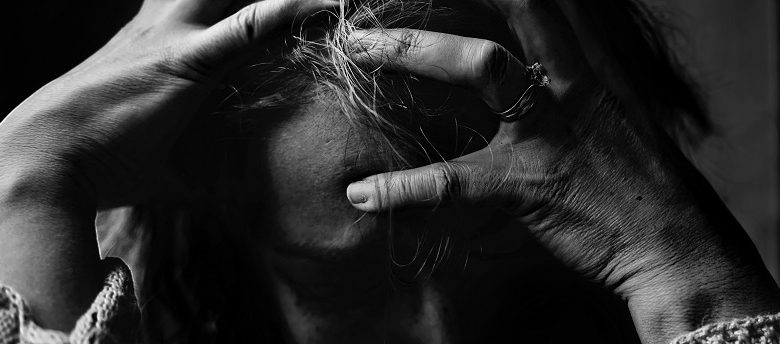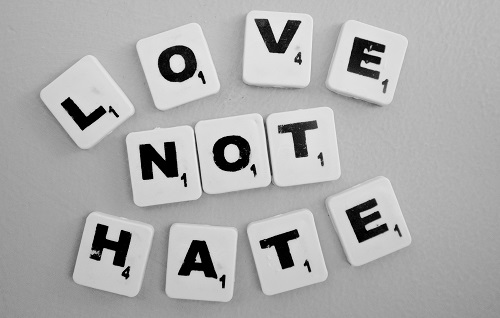
More than 50% of disability hate crime victims have experienced direct verbal abuse
A survey conducted by Disability Horizons and charity Leonard Cheshire has found that more than half of disabled people have had verbal abuse directed at them in public, with 14% experiencing online hate crime.
In the past five years, 61% of the disabled people we spoke to have experienced hate crime in the UK, with 44% experiencing it more than once but less than five times.
Shockingly, 22% have been a victim of it more than five times but less than 10 times and 17% more than 10 times.
For our survey, we spoke to 195 people with a disability or long-term health condition living in the UK between June and July 2021.
Experiences of disability hate crime
Verbal abuse
51% of respondents said they’ve faced verbal abuse directed at them, and 14% have heard verbal abuse about them.
One person told us: “At a funeral. I had occupied two chairs (I had one leg elevated and covered with a shawl), when a woman serving food asked why I had two chairs.
I explained I had a sitting disability problem and was also recovering from a second injury of a fractured leg. The women said; ‘People like you should not come out of their homes. You should have stayed at home then.’”
Another respondent said they had, “A group of teenagers yelling abuse at me when I was walking down the street – offensive things about me being a 30 something and using walking aids, and sexually explicit and threatening stuff.
There was one of me and six of them, it was down a back ally, and felt very intimidating.”
A parent told us how they experienced abuse at the school gate: “I was with my daughter and another mum out of nowhere just started shouting at me, saying some really horrible things including that, ‘My son’s life is worth more than yours! You shouldn’t be here!’”
Someone else was once told: “I should be in a home for people with disabilities and not in a normal house.”

Online abuse
17 people experienced online abuse with 77% of these incidents occurring on Facebook and/or Facebook messenger. 47% of online hate crimes were via email and 41% on Instagram.
One respondent said: “I advertised for a carer and received numerous emails full of vile and hateful name calling (e.g. retard)”
Another told us: “I wrote about my experience on cervical smear and how I couldn’t access anything for 10 years – the abuse was crazy online, with language I just can’t repeat”.
Physical and other forms of abuse
Only 7% of the people who experienced hate crime were victims of physical abuse, but an additional 14% said they’d been involved in other forms of disability hate crime, including in the workplace and by local authorities.
One person shared their ordeal of physical abuse in the street:
“I was initially verbally intimidated by two people in a group of four young people. When I crossed the road to question why one of the group physically attacked me. He punched me several times in the head then kicked me in the head when I was on the pavement.
When I got up and walked away, he followed me and did much the same thing. The verbal intimidation concerned my mental health disability. I have physical disabilities too.”
Hate crime abuse for multiple characteristics
In addition to being abused because of a disability, 33% of respondents said they’ve also experienced a hate crime that was about another characteristic, such as race, gender, age and sexuality.
One person said they’re judged about how disabled they are based on their age:
“I’m constantly told by complete strangers that I’m too young to be disabled or use walking aids. If I’m not using them, I’m told that I look well and I’m not disabled.
Another person has received discriminatory remarks because of being gay: “At a pride event, a group of men didn’t seem very happy to see a disabled person there. I have also been shoved and not made room for.”
A third individual said: “The fact that I am from a BAME background alongside having a physical disability has often led to racist and ableist comments being made – often being muttered as they go past and sometimes made in other languages.
Once my partner and I were in a restaurant in Holborn and my partner overheard a couple sitting at the next table making insults and comments about us in their own language, which she was able to understand as it was in her native tongue.”
Disability hate crime because of Covid-19 pandemic


24% of people experienced disability hate crime as a result of the Covid-19 pandemic. One person said:
“After identifying myself as immunocompromised and asking to be given space, an unmasked jogger swore; ‘F**k you, stay inside’ and coughed directly into my face.”
Another person who is exempt from wearing face masks said they got; “comments made about wearing mask despite wearing a lanyard.”
Lockdowns trigger a surge in online disability hate crime
Separate research conducted by Leonard Cheshire and United Responses ahead of Hate Crime Awareness Week (9th to 16th Oct 2021), found that online hate crime had increased by 52% during the coronavirus pandemic while people were in lockdown across England and Wales.
Abi, from Yorkshire said: “I had almost 50,000 followers on a social media platform when I was targeted by trolls that set up hate pages. The abuse was motivated by the fact that I have autism and am a member of the LGBTQ+ community.
“They revealed my real name and where I lived. The social media platform just told me to make my account private but took no action to identify the trolls or remove their hateful content. The police also just told me to unlink or deactivate my social profiles.”
The latest findings also show in-person hate crime still plagued many disabled people’s lives during the lockdowns. Worryingly, almost half of the disability hate crimes reported last year were ‘violent’ (44%). These included assault and crimes involving weapons.
The charities conducted in-depth consultation with a range of disabled people to find out more about individual experiences of disability hate crime.
Sandra from Wales told the charities: “I fell outside my flat and was knocked unconscious. An older man, that I knew, came to my aid but when the paramedic came, they found him fondling me.
He told the police something along the lines of ‘she’s disabled, who cares’, and ‘it’s probably the best thing that ever happened to her’. Even after this incident, he kept bothering me with verbal intimidation and abuse, with his daughter getting involved and threatening to ‘beat me up’.”
While there were more than 9,250 individual cases reported to police across England and Wales in 2020/21, equating to around 25 disability hate crimes a day, just 1% of cases were referred to the Crown Prosecution Service (CPS) or charged.
Given these outcomes, it is perhaps little wonder that repeat offender rates for disability hate crime are up by 89% on the previous years.
*Our survey was conducted in June and July 2021. We surveyed 195 UK residents who consider themselves to be disabled or have a long-term health condition. This data is not representative of a wider population, nor is it weighted.
By Disability Horizons
More on Disability Horizons…